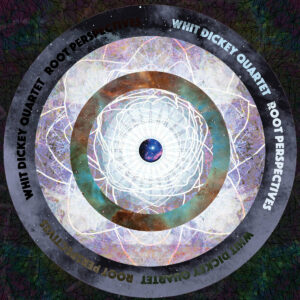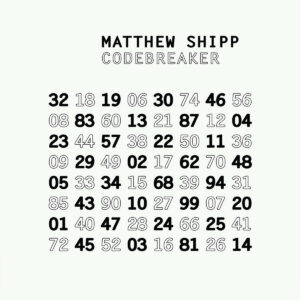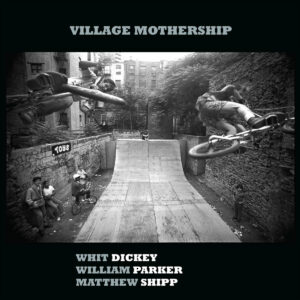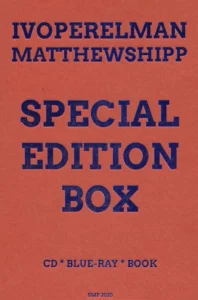Whit Dickey Quartet
Root Perspectives
Tony Malaby, tenor saxophone; Matthew Shipp, piano; Brandon Lopez, bass; Whit Dickey, drums
TAO Forms CD
Drummer Whit Dickey has put together a formidable quartet for Root Perspectives, a release on his TAO Forms label. Joining Dickey are tenor saxophonist Tony Malaby, pianist Matthew Shipp, and bassist Brandon Lopez, all stalwart players of ecstatic jazz. While the musicians have worked with each other in various contexts, this particular configuration is new. They find their footing fast.
Malaby is versatile in his approaches to playing. Howling high notes, skronk squalls, and chromatic scalar work are the stock in trade of free jazz, and he excels in this area. But there are also places where he allows the plummy mid-register of his saxophone to bloom, creating lyrical melodies as interludes between more assertive soloing. Tiis is particularly evident in the coda of the first track, “Supernova,’ where Malaby conjures a beautiful melody out of the ether and Shipp follows suite with diaphanous accompaniment. Shipp too uses an array of approaches, from stentorian rearticulated verticals to fleet-fingered soloing and dazzling arpeggiations. He and Lopez frequently make a play for the lower register, each incorporating gestures from the other to develop. Lopez also frequently directs the harmony to surprising places, bitonal, extended thirds, and mixed interval chords. Dickey is a powerful drummer, but a sensitive one too. He listens carefully to the gestures played by the rest of the quartet, sometimes incorporating them, at others prodding the quartet to take up one of his own rhythmic motives.
The recording consists of four pieces. You don’t have to get too far into the opening piece, “Supernova,’ to realize the specialness of this session. It is never about showing off, but instead about listening to one another and creating dialogue. The next piece, “Doomsday Equation,” plays with punctuated lines from Malaby and Shipp alongside an inexorable funeral march from Dickey, Lopez, and Shipp’s left hand. “Swamp Petals” provides a suave demeanor with polyrhythmic playing from Dickey and a solo from Malaby that takes from the tradition of modern, rather than experimental jazz, to build a formidable solo. As the piece reaches its midpoint, Malaby plays with overtones, restoring a sense of the experimental. Dickey takes a solo, a gradual build with subtle high harmonics from Lopez alongside. The focus gradually moves to the bassist, who creates a swath of overtones before ceding territory to a storming section led by Malaby and Shipp. Altissimo howls take Malaby things as far away from the opening tune as possible. “Swamp Petals” closes as a complete transformation.
The final piece, “Starship Lotus” begins with a cool effect: bass harmonics are combined with saxophone overtones. Meanwhile, Shipp keeps a steady pulse with chords while Dickey provides fills that offset it. Malaby offers an ascending melody and Shipp moves his chord scheme upward to accommodate. The two then create swaths of melodic exchanges while Lopez and Dickey swing with abandon. The quartet then coordinates interlocked ostinatos followed by a limpid solo from Shipp. When Malaby returns, he repeats a melodic cell at various pitch levels to develop a solo which then tapers off into sustained notes. It builds to a fierce crescendo, with overblowing creating vibrant multiphonics. The rhythm section takes the foreground, with a nimble solo from Lopez that includes double stops, and multiple tempo streams from Dickey. Malaby and Shipp return with material similar to the opening, with the addition of thunderous hammer blows from Shipp, that presents the quartet at its most powerful. A brief denouement for drums brings “Starship Lotus” to its conclusion. Root Perspectives is excellent in its variety of interactions and superlative in the quality of its music-making. Recommended.
-Christian Carey



